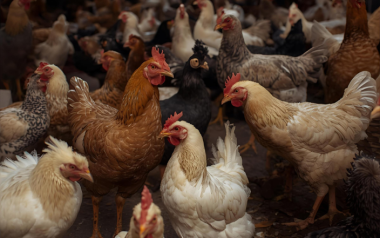Sources: Available upon request
13 Jul 2024
Chile recognizes Argentina as avian influenza-free
In a significant development for the poultry industry, Chile has officially recognized Argentina as a country free from High Pathogenicity Avian Influenza (HPAI).
In a significant development for the poultry industry, Chile has officially recognized Argentina as a country free from High Pathogenicity Avian Influenza (HPAI). This recognition comes after Argentina successfully contained and eradicated outbreaks of avian flu in its commercial poultry farms. As a result, poultry exports between the two neighboring countries have resumed, benefiting both economies.
This recognition is the result of rigorous and coordinated work between the sanitary authorities of both countries, said Chilean government officials. It ensures that poultry products imported from Argentina meet the highest standards of sanitary safety, thus protecting public health and animal welfare in Chile.
Background
The avian flu outbreak in Argentina began in early 2023, causing concern among poultry producers and disrupting trade. The disease, caused by the highly pathogenic H5N1 virus, led to the suspension of poultry exports from Argentina. However, swift action by the National Service for Agri-Food Health and Quality (SENASA) helped contain the outbreaks and restore Argentina’s disease-free status.
Argentina’s self-declaration
On August 7, 2023, Dr. Ximena Melón, National Director for Animal Health at SENASA, submitted a self-declaration to the World Organisation for Animal Health (WOAH). This declaration confirmed Argentina’s status as a country free from HPAI, in accordance with the WOAH Terrestrial Animal Health Code. The scope of this declaration covers the entire country, including its poultry production systems.
Poultry industry in Argentina
Argentina boasts a robust poultry industry, with over 4,000 establishments involved in poultry meat production. These include genetic establishments, hatcheries, and broiler production farms. In 2022, Argentina slaughtered a staggering 751,691,962 chickens. Additionally, the laying sector maintains more than 42 million laying hens and nearly 9 million rearing birds. SENASA oversees the health regulations governing these poultry systems, ensuring disease control and public health safety.
Resumption of poultry exports
Chile’s recognition of Argentina’s avian influenza-free status has paved the way for the resumption of poultry exports. Approximately a month after the self-declaration, compliance with international standards was confirmed, allowing trade to resume. During the epidemic, Argentine chicken meat exports had declined by 28% in volume and 35% in value during the first semester.
Conclusion
Argentina’s successful containment of avian flu outbreaks and Chile’s recognition of its disease-free status demonstrate effective collaboration between neighboring countries. The resumption of poultry exports not only benefits both nations’ economies but also ensures a stable supply of poultry products for consumers. As Argentina continues to prioritize animal health, it sets an example for other countries facing similar challenges in the poultry industry.







































